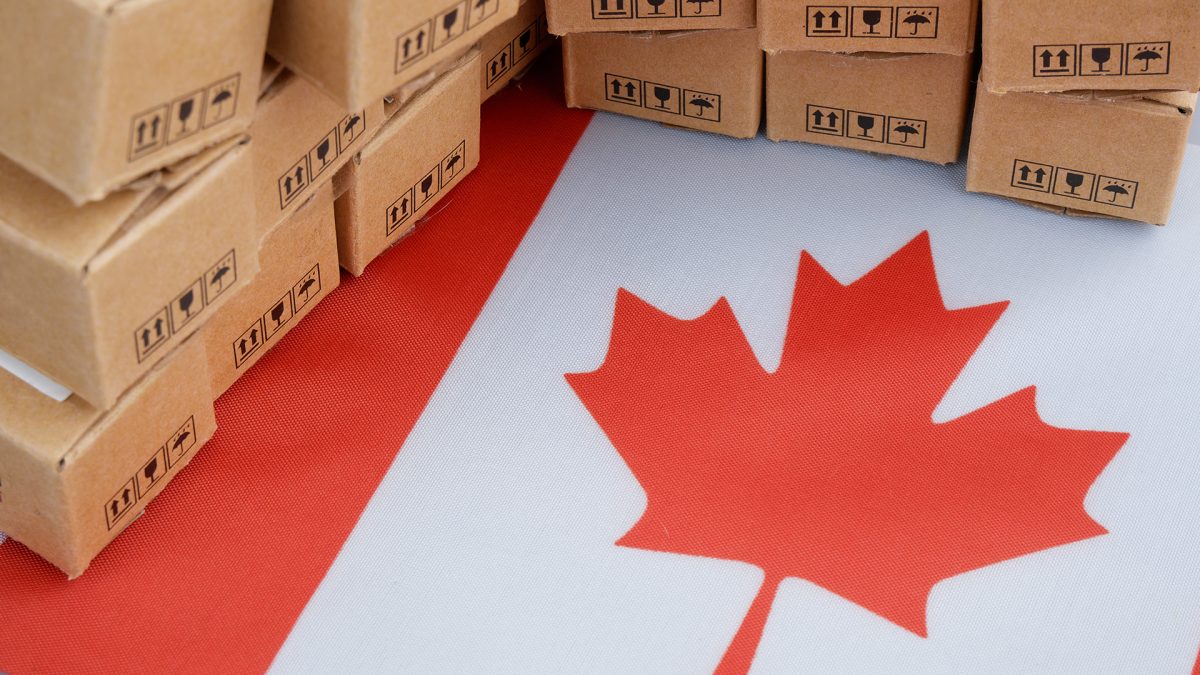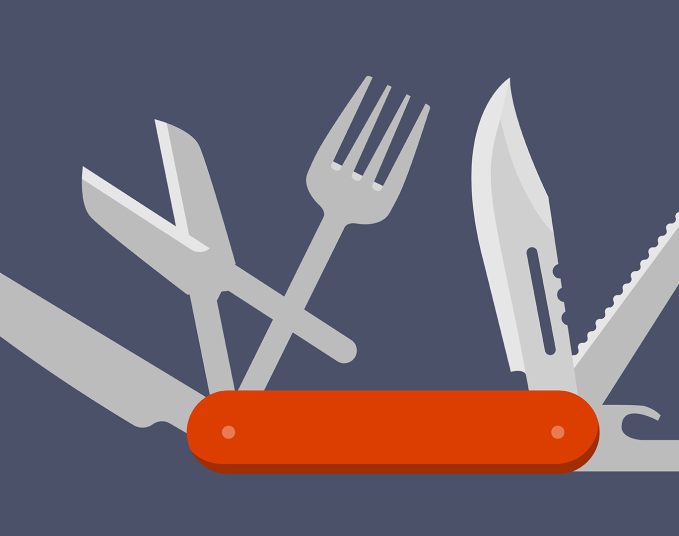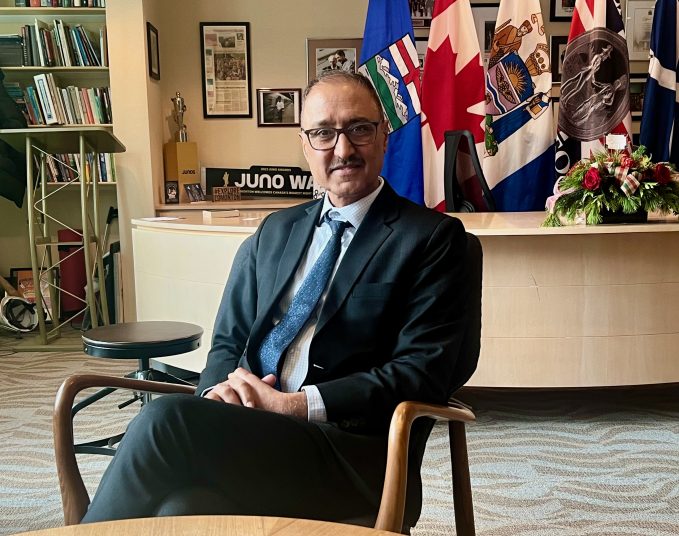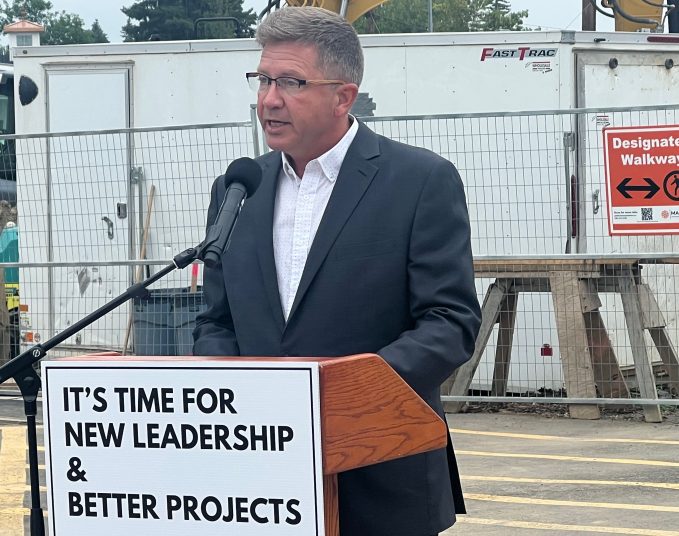Want to do a better job supporting Canadian business? Take the next few weeks to help clear all the American made stock off of the store shelves and inventory lists.
That’s the advice offered by Edmonton Chamber of Commerce President Doug Griffiths, who addressed City Council this week. He joined City Manager Eddie Robar and Edmonton Global head Malcolm Bruce to speak on the ceasefire in the trade war between Canada and the United States.
“We can’t punish local businesses for what they have in stock,” said Griffiths. And he said Edmonton consumers should spend the next month helping businesses clear out their American-made inventories, so they have the buying power – and space — to replace them with Canadian goods.
He said it’s up to citizens to ask: “What do I buy to keep you in business and to help with the transition?”
This echoes statements made earlier this week by celebrated Edmonton chef Paul Shufelt, who helms Robert Spencer Hospitality, which includes Woodshed Burgers, Workshop Eatery and Hayloft Steak and Fish.
“As small biz gets dealt another blow in what has been a five-year shit kicking, please don’t take your anger out on them,” Shufelt posted to his social media accounts. “If they still have a California Cab or bottle of bourbon on their shelf, we are tapped — emotionally, spiritually and financially, and don’t have the bandwidth to drop everything to completely revamp menus, wine lists, cocktail programs, to ‘shop local’ because it’s trendy again.
“The truth is, most small restaurants already do a ton to support the local economy, not because it’s cool or because a politician reminds us to, but because we have great relationships with fellow local, small business owners, who care deeply about the things they grow, raise or produce. We’ve done this for years, and will continue to do so. We will make adjustments, and buy even more local product, but please don’t expect to walk into restaurants that are suddenly ‘proudly Canadian.’”
We are currently in the midst of a 30-day pause in the tariff hostilities, but there is still the very real possibility that, by this time next month, consumers in both countries (and Mexico, too), will see the real economic impacts of a trade war. U.S. President Donald Trump has promised wide-ranging 25 per cent tariffs on Canadian goods, save for energy products, which will be subjected to 10 per cent charges. Canada has responded with a sweeping 25 per cent tariff schedule on American goods coming into the country.
Holy Sword of Damocles, Batman.
This isn’t about the next few weeks. And it’s not just about the current tariff row. Robar said that the City needs to be prepared for “four years of volatile economic climate.” Basically, as long as Trump is in the Oval Office, we need to expect the unexpected.
Bruce said Canadians need to get used to the “common theme of uncertainty.” And, while this current trade battle feels like Canada has been punched by its best friend, we cannot react with anger.
“We need to be laser-focused, we need to be thoughtful on our activities that we’re going to undertake, and we need to be working without emotion,” Bruce said.
But Griffiths said the next 30 days offers time for Canadian businesses, government agencies and consumers to talk about working together.
“This crisis is the impetus to long-term success,” Griffiths said.” I hope we don’t waste the opportunity.”
He said chambers of commerce across Canada will advocate for tariff revenue to be put back into businesses that have been adversely affected by the trade war. And he said it’s finally time for Canadian provincial governments to start working on removing our internal trade barriers. The truth is (ask anyone in the liquor business) that the reason we depend so much on American trade is that it’s easier for many businesses to ship goods south than it is to ship them to other provinces. We are a country of red tape.
“It’s the exact same strategy that will move our economy forward even if there are no tariffs,” said Griffiths “It’s the perfect opportunity for this city to evaluate its economic opportunities and achieve its full economic potential.”
He said a survey of Chamber members indicated that the vast majority are deeply concerned about tariffs. And he said he has spoken to Edmonton businesses that may consider moving their manufacturing businesses to the United States if there is a tariff war.
And Coun. Keren Tang said she’s heard from Edmonton businesses that their American suppliers are rushing to get orders complete so they can have the goods across the border within the 30-day grace period.
Griffiths, Bruce and City officials will soon be bringing in other major CEOs of organizations — think Edmonton International Airport and Edmonton Unlimited — to create a “Team Edmonton” that will further the region’s economic interests.
While the feeling at City Hall was like a pep rally, and social media is filled with “Buy Canadian” rhetoric, the cynic will note that other past crises hasn’t led Canadians to change their ways. We still buy a lot of our stuff from China and the United States. Even Griffiths, who led the rah-rah charge, admitted a simple, harsh truth — that the COVID-19 crisis did very little to get Canadians to change their ways. He admitted that we didn’t see the pandemic as a catalyst to diversify our economy or make ourselves more self-reliant. Basically, he said it was time for Canadians to finally stop talking the talk and actually get off our asses.
Savvy AF. Blunt AF. Edmonton AF.




